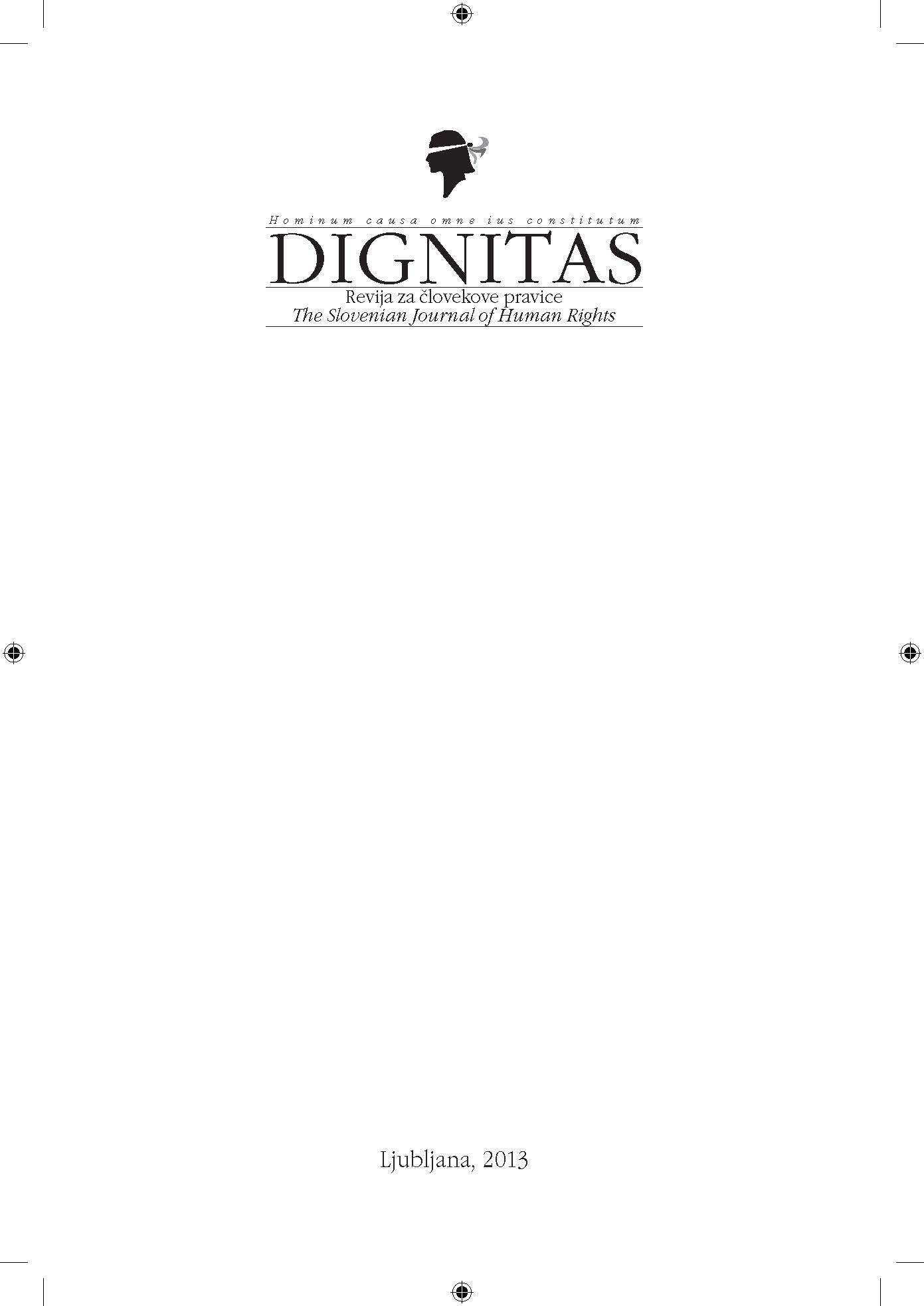Research on Private Education Institutions in International Markets
Izvleček
-
References
BalkanInsight, New Universities in the Balkans: European Visions, UFOs and Megatrends, Florian
Bieber, http://www.balkaninsight.com/en/blog/new-universities-in-the-balkans-european-visionsufos-
and-megatrends (25.03.2013).
D. C. Levy, The Decline of Private Higher Education, Higher Education Policy, no. 26 (2013), pp.
25–42.
EACEA, Key Data on Education in Europe 2012, Education, Audiovisual and Culture Executive Agency,
Brussels, 2012.
EdInvest, Handbook on Public Private Partnerships, Part One: Purpose & Objectives, http://www1.
ifc.org/wps/wcm/connect/Topics_Ext_Content/IFC_External_Corporate_Site/EdInvest_Home/
PublicPrivatePartnerships/ (25.03.2013).
Hellenic Colleges Association, Private Higher Education in Western Europe, Hellenic Colleges Association,
Athens, 2007.
INCHER-Kassel, Higher Education, Research and Innovation: Changing Dynamics, International Centre
for Higher Education Research Kassel, Kassel, 2009.
OECD, Tertiary Education for the Knowledge Society, http://www.oecd.org/edu/skills-beyond-school/
tertiaryeducationfortheknowledgesocietyvolume1specialfeaturesgovernancefundingquality-volume2specialfeaturesequityinnovationlabourmarketinternationalisation.
htm (23.03.2013).
OECD, Higher Education to 2030, Volume 2 Globalisation, OECD Publishing, Paris, 2009.
OECD, Education at a Glance 2011: OECD Indicators, OECD Publishing, Paris, 2011.
University World News, EUROPE: Tired pioneers in Eastern and Central Europe, Bianka Siwinska,
http://www.universityworldnews.com/article.php?story=20111111215313914 (25.03.2013).
University World News, Expansion of private higher education, Yojana Sharma, http://www.universityworldnews.
com/article.php?story=20090707152445674&query=private+education (25.03.2013).
UNESCO-CEPES, The Rising Role and Relevance of Private Higher Education in Europe, Presa
Universitară Clujeană, Bucharest, 2007.
UNESCO, Trends in Global Higher Education: Tracking an Academic Revolution, UNESCO, Paris,
2009a.
UNESCO, A New Dynamic: Private Higher Education, UNESCO, Paris, 2009b.
World Bank, Higher Education in Developing Countries: Peril and Promise, World Bank, Washington
D.C., 2000.
World Bank, Learning for All: Investing in People’s Knowledge and Skills to Promote Development,
World Bank Group Education Strategy 2020, World Bank, Washington D.C., 2011.
Bieber, http://www.balkaninsight.com/en/blog/new-universities-in-the-balkans-european-visionsufos-
and-megatrends (25.03.2013).
D. C. Levy, The Decline of Private Higher Education, Higher Education Policy, no. 26 (2013), pp.
25–42.
EACEA, Key Data on Education in Europe 2012, Education, Audiovisual and Culture Executive Agency,
Brussels, 2012.
EdInvest, Handbook on Public Private Partnerships, Part One: Purpose & Objectives, http://www1.
ifc.org/wps/wcm/connect/Topics_Ext_Content/IFC_External_Corporate_Site/EdInvest_Home/
PublicPrivatePartnerships/ (25.03.2013).
Hellenic Colleges Association, Private Higher Education in Western Europe, Hellenic Colleges Association,
Athens, 2007.
INCHER-Kassel, Higher Education, Research and Innovation: Changing Dynamics, International Centre
for Higher Education Research Kassel, Kassel, 2009.
OECD, Tertiary Education for the Knowledge Society, http://www.oecd.org/edu/skills-beyond-school/
tertiaryeducationfortheknowledgesocietyvolume1specialfeaturesgovernancefundingquality-volume2specialfeaturesequityinnovationlabourmarketinternationalisation.
htm (23.03.2013).
OECD, Higher Education to 2030, Volume 2 Globalisation, OECD Publishing, Paris, 2009.
OECD, Education at a Glance 2011: OECD Indicators, OECD Publishing, Paris, 2011.
University World News, EUROPE: Tired pioneers in Eastern and Central Europe, Bianka Siwinska,
http://www.universityworldnews.com/article.php?story=20111111215313914 (25.03.2013).
University World News, Expansion of private higher education, Yojana Sharma, http://www.universityworldnews.
com/article.php?story=20090707152445674&query=private+education (25.03.2013).
UNESCO-CEPES, The Rising Role and Relevance of Private Higher Education in Europe, Presa
Universitară Clujeană, Bucharest, 2007.
UNESCO, Trends in Global Higher Education: Tracking an Academic Revolution, UNESCO, Paris,
2009a.
UNESCO, A New Dynamic: Private Higher Education, UNESCO, Paris, 2009b.
World Bank, Higher Education in Developing Countries: Peril and Promise, World Bank, Washington
D.C., 2000.
World Bank, Learning for All: Investing in People’s Knowledge and Skills to Promote Development,
World Bank Group Education Strategy 2020, World Bank, Washington D.C., 2011.
Objavljeno
2018-12-24
Section
Articles

This work is licensed under a Creative Commons Attribution-NonCommercial-NoDerivatives 4.0 International License.
Authors who publish with this journal agree to the following terms:
- Authors are confirming that they are the authors of the submitting article, which will be published (print and online) in journal Dignitas by Nova univerza, Fakulteta za slovenske in mednarodne študije. Author’s name will be evident in the article in journal. All decisions regarding layout and distribution of the work are in hands of the publisher.
- Authors guarantee that the work is their own original creation and does not infringe any statutory or common-law copyright or any proprietary right of any third party. In case of claims by third parties, authors commit their self to defend the interests of the publisher, and shall cover any potential costs.
- Authors retain copyright and grant the journal right of first publication with the work simultaneously licensed under a
Attribution-NonCommercial-NoDerivatives 4.0 International (CC BY-NC-ND 4.0)
that allows others to share the work with an acknowledgement of the work's authorship and initial publication in this journal. - Authors are able to enter into separate, additional contractual arrangements for the non-exclusive distribution of the journal's published version of the work (e.g., post it to an institutional repository or publish it in a book), with an acknowledgement of its initial publication in this journal.
- Authors are permitted and encouraged to post their work online (e.g., in institutional repositories or on their website) prior to and during the submission process, as it can lead to productive exchanges, as well as earlier and greater citation of published work.

